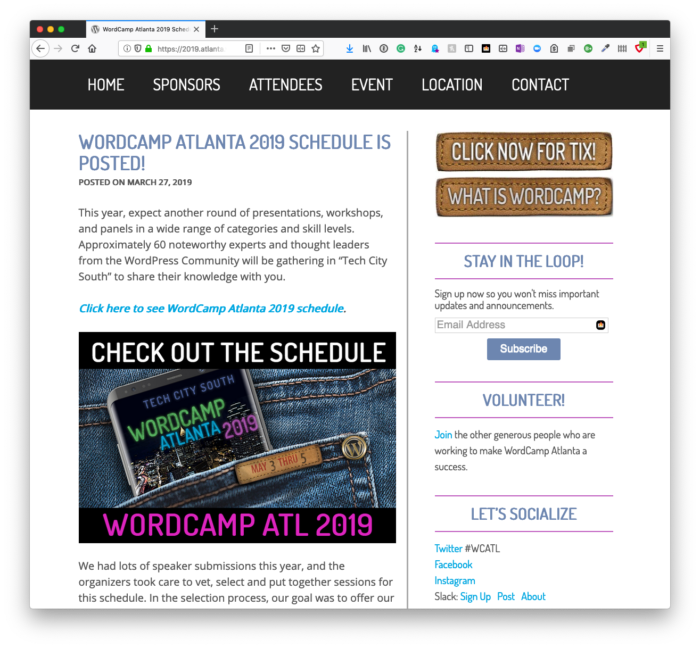Ask anyone who’s been to a WordCamp and one of the things that you’re likely to hear that has the most benefit is “The Hallway Track.” The’s debatable on if it’s the most benefit, but it offers a lot.
For those who’ve never been to a WordCamp, then think of it this way: WordCamps are usually divided into tracks throughout the day.
These may include (but aren’t, of course, limited to):
- Development,
- Design,
- Business,
- and more.
The Hallway Track, though, is an unofficial name given to the time spent in between sessions where you get to meet people, see people you already know, or talk more about the things you’re working on, you’re learning, or just find out about new things that are happening in the various facets of the WordPress economy.
What does this have to do with WordSesh, though? Considering not everyone can make it to a WordCamp (for a variety of reasons), quite a bit.



